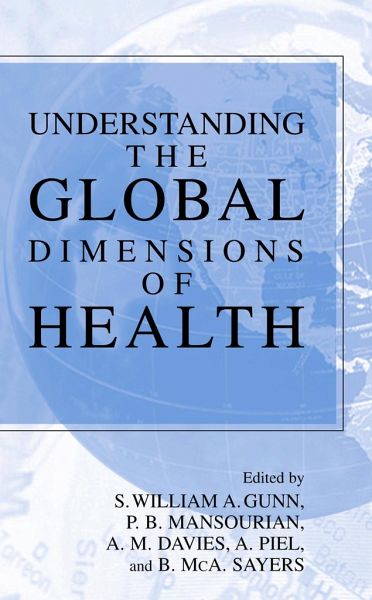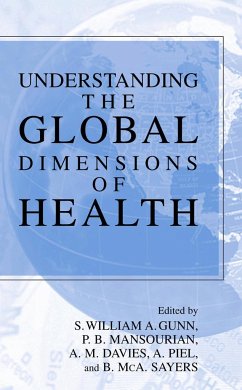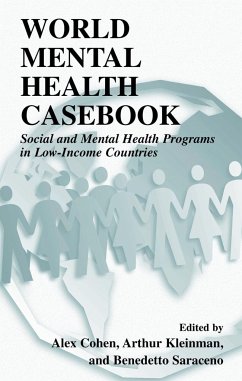
Understanding the Global Dimensions of Health
Versandkostenfrei!
Versandfertig in 6-10 Tagen
61,99 €
inkl. MwSt.

PAYBACK Punkte
31 °P sammeln!
"Health is not escaping the current bulldozer of 'globalization,' with its attendant benefits, errors, complications, and unknowns. Economic, social, political, environmental, behavioural, and even transcendental factors are being perceived as shaping the increasingly borderless world order, and societal structures, including the health professional, are finding themselves ill prepared for the changes...This book is an attempt to understand, explain and if possible act on the transformations....It is highly recommended as a welcome collection of level-headed analyses of the current confused tr...
"Health is not escaping the current bulldozer of 'globalization,' with its attendant benefits, errors, complications, and unknowns. Economic, social, political, environmental, behavioural, and even transcendental factors are being perceived as shaping the increasingly borderless world order, and societal structures, including the health professional, are finding themselves ill prepared for the changes...This book is an attempt to understand, explain and if possible act on the transformations....It is highly recommended as a welcome collection of level-headed analyses of the current confused transmutations in disease theory and health action" (Journal of Humanitarian Medicine, vol. IV, no. 4, October-December 2004).
"With a free spirit, the authors examine the bioethical, socio-political and scientific aspects of health" (World Health Organization Quarterly News, October-December 2005).
Health is a basic human right. But as our planet grows smaller, the number ofpeople without even minimal care continues to rise. Understanding the Global Dimensions of Health brings into sharp focus the ethics and multiple questions involved in keeping the world in optimal health - and identifies the massive tasks that lie ahead.
Twenty-one internationally known contributors examine the bioethical, sociopolitical and scientific aspects of health, epidemics, aging populations, the double burden of disease, food safety, and other major health concerns of well-being at the international level. Because exporting health care expertise abroad entails more than merely translating what we know, they meet the controversies head-on:
- Are health technologies wisely used?
- Can today's medicine coexist with traditional views and cultural practices?
- Will the configuration of health resources change as people live longer?
- Why are pandemics not controlled better?
- Who wins when health systems clash with sociopoliticalsystems?
- Does globalization necessarily mean the westernization and homogenization of care?
Fast changing conditions and recent catastrophic events demand answers to these and similar vital questions. The authors of Understanding the Global Dimensions of Health balance realism, optimism and social conscience in their coverage so health professionals, policymakers and leaders can address them - locally as well as globally.
"With a free spirit, the authors examine the bioethical, socio-political and scientific aspects of health" (World Health Organization Quarterly News, October-December 2005).
Health is a basic human right. But as our planet grows smaller, the number ofpeople without even minimal care continues to rise. Understanding the Global Dimensions of Health brings into sharp focus the ethics and multiple questions involved in keeping the world in optimal health - and identifies the massive tasks that lie ahead.
Twenty-one internationally known contributors examine the bioethical, sociopolitical and scientific aspects of health, epidemics, aging populations, the double burden of disease, food safety, and other major health concerns of well-being at the international level. Because exporting health care expertise abroad entails more than merely translating what we know, they meet the controversies head-on:
- Are health technologies wisely used?
- Can today's medicine coexist with traditional views and cultural practices?
- Will the configuration of health resources change as people live longer?
- Why are pandemics not controlled better?
- Who wins when health systems clash with sociopoliticalsystems?
- Does globalization necessarily mean the westernization and homogenization of care?
Fast changing conditions and recent catastrophic events demand answers to these and similar vital questions. The authors of Understanding the Global Dimensions of Health balance realism, optimism and social conscience in their coverage so health professionals, policymakers and leaders can address them - locally as well as globally.












